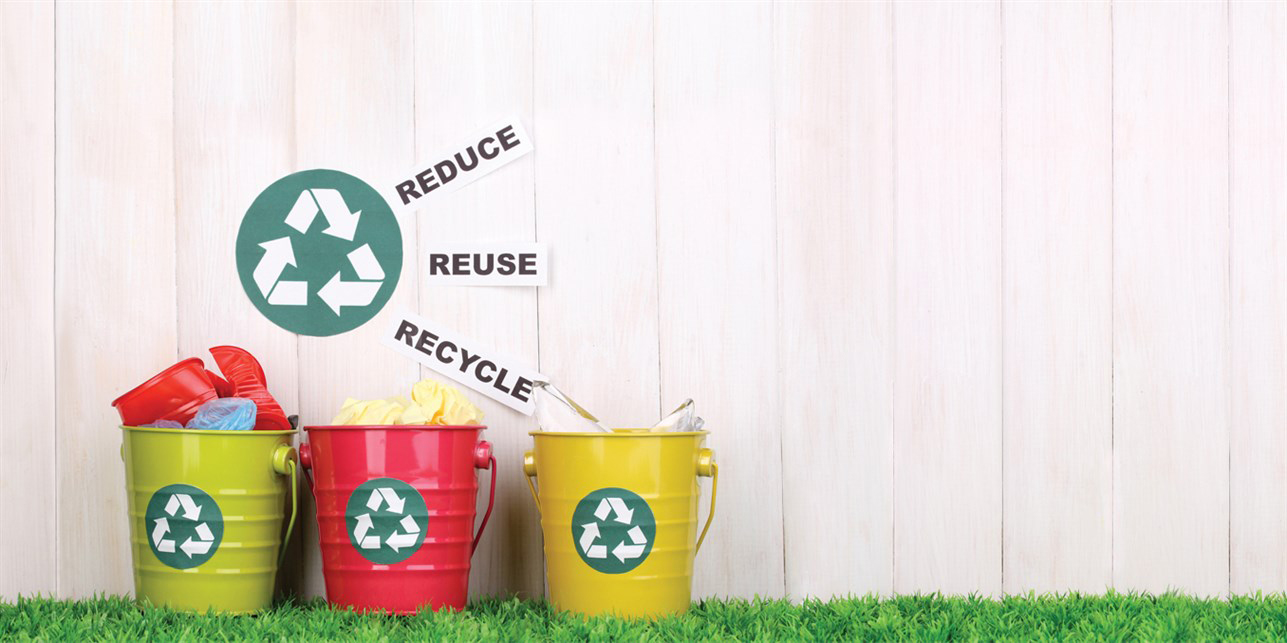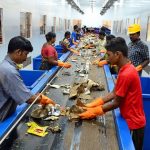SANGITA SHARMA
Common Bins in Commercial areas, Eateries, Vegetable & Fruit markets have proved to be failures as they are over filled most of the time with waste spilling out, animals tearing the bags and littering the area and people using the site for dumping surplus waste. So the need for collecting waste from each one separately is the real need of the hour. Door-to-door collection of waste helps to clear waste systematically and also identify those who do not adhere to the rules.
The earth is a unique planetary body which offers the greatest gift to its inhabitants – LIFE. Its natural resources have sustained life for millions of years. But as time is going by, this glorious beautiful earth is getting destroyed by the greed, avarice and careless attitude of its inhabitants.
The manmade disaster of mismanagement of solid waste and other pollutants is becoming diabolical in proportion. India alone generates 62 million tonnes of solid waste every year. Only 25 – 30 % of this waste is treated and the rest is dumped into landfills, which end up polluting our food, water and air.
Goa too is riddled with environment and solid waste management issues and immediate action needs to be taken by Govt agencies and its citizens.
Under the aegis of ‘Swach Bharat Aabhiyan’, clear-cut guidelines for Solid Waste Management have been laid down by the Union Ministry of Environment, Forest & Climate Change:
- Source segregation of waste.
- System to be put in place by Non-Biodegradable Product Manufacturers, to collect back the packaging waste from the buyers.
- Street vendors to keep their own bins or containers to collect and deposit their own wastage at a storage depot or vehicle.
- Landfills to be avoided, but if necessary they should be at specified distances – 100 mtrs from rivers, 200 mtrs from ponds, 500 mtrs from highways, habitations, public parks and water supply wells, 20 km from airports and airbases. Transfer stations and processing facilities in hilly regions allowed.
- Specific rules and guidelines for waste processing and treatment in SEZ’s.
- Involvement of rag pickers and generating employment for them.
- Role of Municipal authorities in solid waste management.
- Process of monitoring.
Going by these guidelines, the State Govt of Goa needs to take a holistic approach to combat the menace of pollution created by Solid Waste.
The first step in this direction is certainly to educate the citizens and municipal workers of the ill effects of solid waste, method to dispose it in a scientific manner and provide an infrastructure so that the needful can be done. To this end, the Govt agencies responsible for sanitation and cleanliness need to conduct workshops all over the State. They can be at Schools, Colleges, Villages, and Residential or Commercial areas. Even the religious institutions can participate. The aim should be to clearly explain to the participants (citizens and workers), the hazard of waste to the environment and health.
Segregation and disposal of solid waste is the responsibility of the citizens and workers. People have to be educated as to how the different categories of waste have to be disposed and how it has to be handed over to the municipal workers. The workers too have to collect the segregated waste; category wise, separately. This entire process of handing over and collecting has to be monitored by supervisors who have to be given the added responsibility of attending to complaints and levying fines, if required. Incentives should be given to workers for having done their work correctly, from time to time. Disposal Bags given at no profit basis to participants and a method devised for fulfilling future requirements.
The collection of waste has to be done ‘door-to-door’ or ‘house-tohouse’. Commercial shops, Schools, Hospitals, Restaurants, Hotels etc too have to adhere to the concept of segregation of solid waste.
Workers have to be provided with uniforms, gloves, different garbage collection bags and vans or carts. Steps have to taken by residents unavailable at the time of waste collection, to ensure that waste is picked up in their absence without littering the area.
Common Bins in Commercial areas, Eateries, Vegetable & Fruit markets have proved to be failures as they are over filled most of the time with waste spilling out and people using the site for dumping surplus waste. So the need for collecting waste from each one separately is the real need of the hour. Door-to-door collection of waste helps to clear waste systematically and also identify those who do not adhere to the rules. ‘Blast Resistant Litter Bins’ are a response to the threat of explosive devices hidden in trash cans located in high traffic public areas such as airports, shopping centres and railway stations.
The municipalities are usually overworked and understaffed. To reduce their load it would be practical to open ‘Solid Waste Disposal Sites & Storage Depots’ in different parts of the city, commensuration with the population and these should be multipurpose in function, where:
- Street vendors and Small time business individuals can deposit waste.
- People can come and deposit scrap to the Scrap dealers.
- Manufacturers of non-biodegradable products can buy back packaging waste from their buyers. These measures will also help in avoiding landfills. Rag pickers can be suitably employed by the Depots or Municipalities for segregation.
- The Industrial & SEZ areas have to incorporate the guidelines of the Govt and appear visibly clean.
- The Construction Sector needs to device methods to rid the environment of debris.
- Goa’s tourist population too has to be informed to keep Goa clean. This can be done by printing the message on air/ rail/ bus tickets and on big bill boards which are clearly visible. Also, penalties for littering should be mentioned.
The response by the people to the recently conducted Keep Goa Clean campaign by ‘Carpet of Joy’ at Saligao, the efforts of Goa Foundation, the efforts of individuals like Mrs Alka Damle of Vasco, Students Seminars at Rosemary College at Navelim, the initiative of ‘Goa Green Works’ to encourage people to make compost and efforts of many others, reaffirms the concerns for a clean environment amongst people of the State.
The onus of monitoring the ‘Solid Waste Management System, by Industries, Construction Companies, Hotels, Large Institutions lies with the Government, which must take the matter seriously.



























